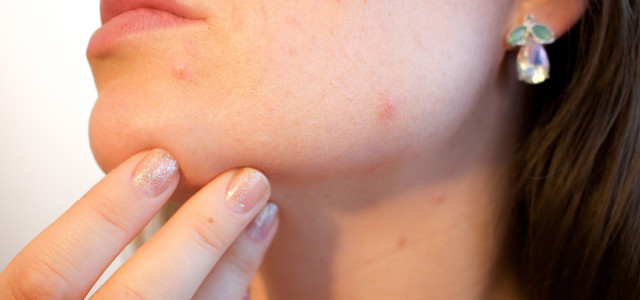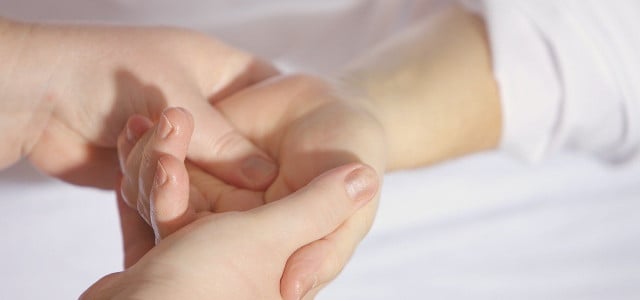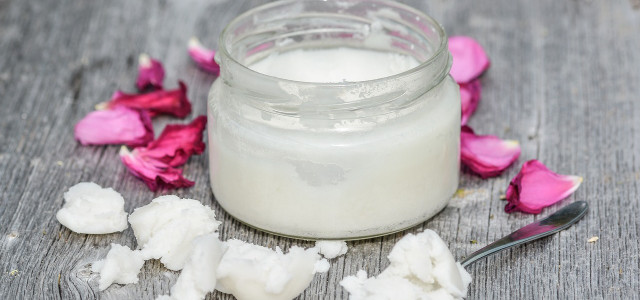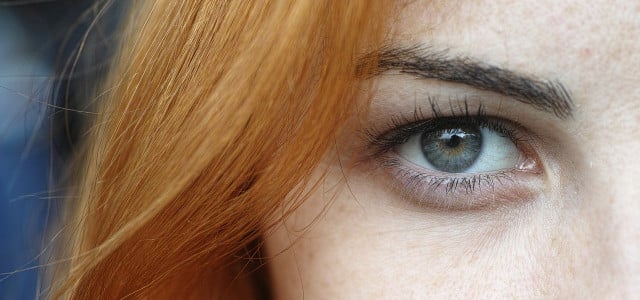Colder weather often comes with more skin problems. Here are the most common winter skin problems and how to remedy them with natural treatments.
Winter can be rough on your skin. Dry cold air whenever you are outside and the lack of humidity indoors can quickly irritate and dehydrate your skin. Dry, itchy skin is a common experience in winter, but there are a host of other skin problems that can flare up in the colder months. Thankfully most of these winter skin problems are minor and can be treated effectively with various natural remedies.
1. Gloves and Socks Against Chilblains
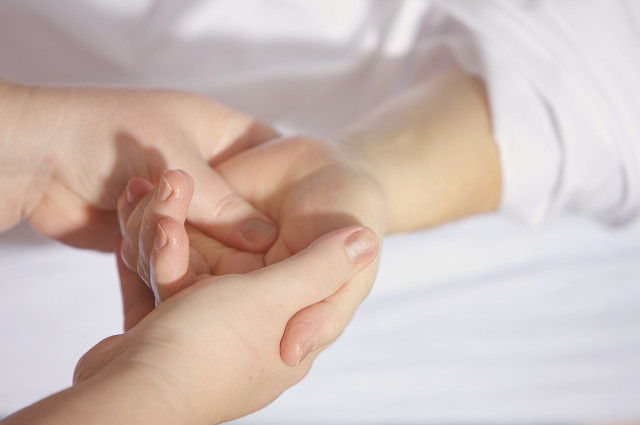


(Foto: CC0 / Pixabay / andreas160578)
With the temperature drop, little blood vessels in the extremities, such as your toes and fingers, go through vasoconstriction. This means a decrease in the amount of blood and oxygen being supplied to these parts of the body, leading to redness, pain, and itchiness called perniosis or chilblains.
The best way to avoid this particular winter skin problem naturally is by keeping your fingers and toes warm by wearing gloves and socks when outdoors and by keeping warm when at home. Try making homemade hand warmers and use tricks to keep your feet warm this winter. Applying essential oils such as lavender, mustard oil, and ginkgo biloba will aid in boosting blood flow to affected areas, but ultimately if these strategies fail to work, you will need to see a dermatologist for professional advice.
Also interesting: Can Drinking More Water Avoid Dry Hands in Winter?
2. Moisturizer Against Psoriasis
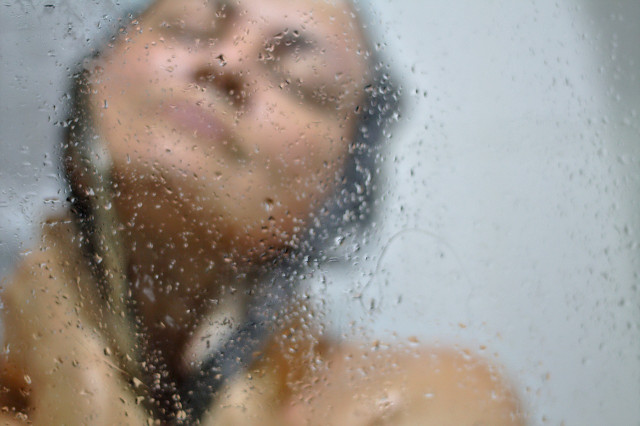


(Foto: CC0 / Pixabay / wilkernet)
Psoriasis is a condition where people can develop thick, scaly reddish lesions on their skin and scalp. This is an autoimmune disease, and the dry air that comes with the winter months can really have an aggravating effect on people who suffer from psoriasis. Sadly this condition is incurable. However, there are ways to alleviate its symptoms and even prevent flare-ups.
Moisturizers containing shea butter, vitamin D, and vitamin A creams, as well as treatments containing coal tar, can work at keeping skin hydrated and well-nourished. You can also try making homemade body butter to help moisturize your skin. Stress can often be a factor that can exacerbate the condition, so utilizing common relaxation techniques can help. Keep in mind, however, that psoriasis is one of those skin problems that will definitely need a consultation with a medical professional to properly manage and prevent it from becoming a chronic condition.
3. Come Prepared to Avoid Windburn
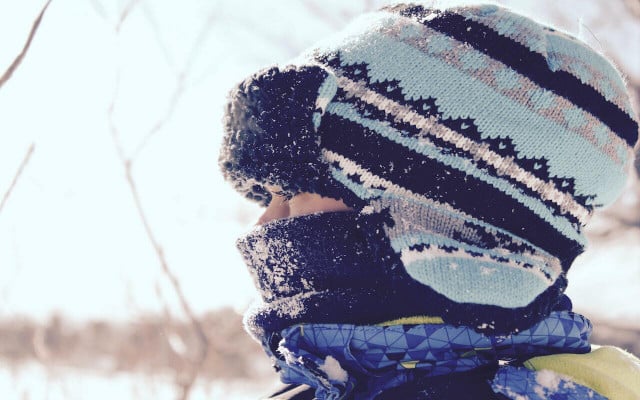


(Foto: CC0 Public Domain / Unsplash / Jason Rosewell )
By far one of the most widespread winter skin problems is windburn. Even spending a short amount of time outside can be enough to cause it. When exposed to the cold winter wind, skin becomes dry, red, and feels very much like a mild case of sunburn.
Prevention is key, especially for those of us who are working outdoors in the winter, so nice thick coats, gloves, hats, and scarves are the best defense. Applying a protective cream like shea butter before heading outside can protect your skin from the cold wind, and if you have windburn already soothing your skin with aloe vera gel will alleviate much of the discomfort and will help your skin recover quickly.
4. Cold Urticaria (aka Hives)
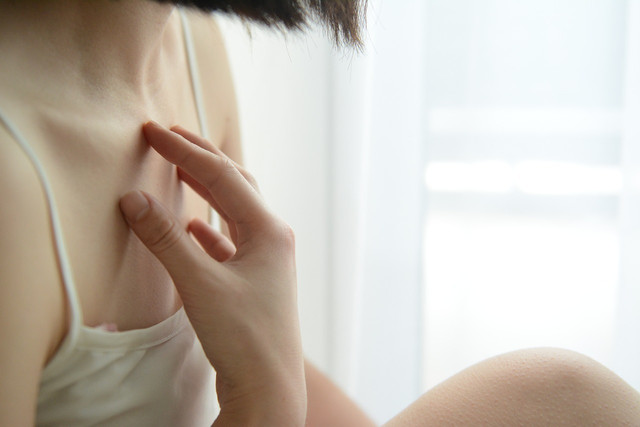


(Foto: CC0 / Pixabay / miapowterr)
Cold urticaria or hives is when the skin allergically reacts to external factors, resulting in itchy red welts on the skin’s surface. There are many reasons for an urticarial reaction, such as allergens. Still, in the winter, it is almost always triggered by the cold weather, which is why hives, in this instance, are technically called cold urticaria.
The best treatment is prevention for this winter skin problem, so reducing your skin’s exposure to the cold should be your first option. A soothing balm containing witch hazel or aloe vera may help ease the irritation. If the problem becomes more serious, you may need to see a dermatologist who will offer the best advice in dealing with hives long-term, which may include the use of antihistamines and/or calamine lotion.
5. Lip Balm Against Chapped Lips
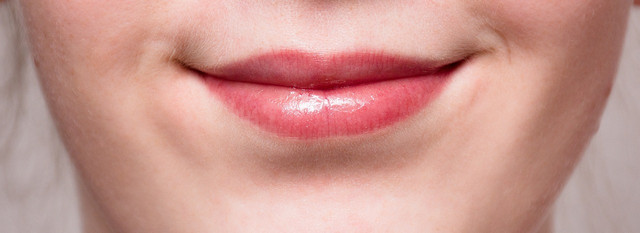


(Foto: CC0 / Pixabay / Anemone123)
Chapped lips are one of the most common winter skin problems and go hand-in-hand with windburn in the winter. Lips have very sensitive skin and unlike other parts of the body, they can’t always be covered up. Winter can cause your lips to become particularly dry and, in more severe cases, can cause splitting, flaking, and bleeding if left unattended.
Your natural instinct will be to lick your lips, but this will only make the problem worse. Regular application of homemade chapstick or natural lip balms containing tea tree oil, coconut oil, and aloe vera before and after spending time outdoors usually helps reduce the problem quickly.
6. Eczema
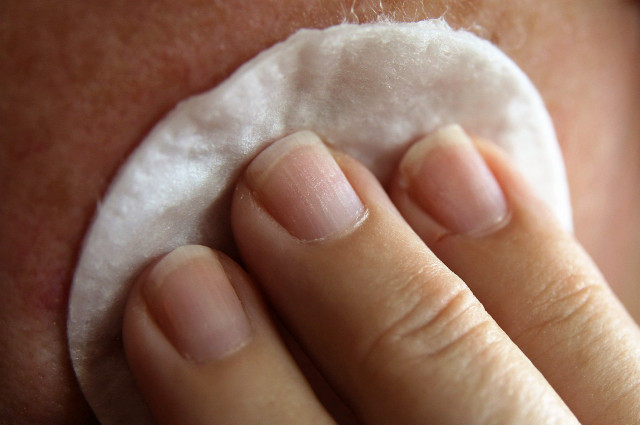


(Foto: CC0 / Pixabay / chezbeate)
Dry weather conditions throughout the winter will often increase the risk of developing eczema. Anyone who has had eczema before will know how uncomfortable it can get, with red, itchy bumps appearing on the most affected areas of the body.
To treat this winter skin problem, use a natural, fragrance-free moisturizer and avoid bathing excessively and long hot showers since eczema can be inflamed by soaps and hot temperatures, which will aid in reducing your skin’s natural oils and hydration. Opt for natural bar soap, or homemade soap to avoid common skin irritants. In more severe cases, always consult with a medical practitioner as a more specialized form of treatment may be required.
Read on:
- Sunburn Home Remedies: 3 Natural Treatment Methods
- DIY: Homemade Face Moisturizer for Dry Skin
- 7 Benefits of Matcha for Skin
- Why Artificial Snow Can’t Be a Long-term Solution
Important Information regarding Health-related Topics.
** Links to retailers marked with ** or underlined orange are partially partner links: If you buy here, you actively support Utopia.org, because we will receive a small part of the sales proceeds. More info.Do you like this post?






